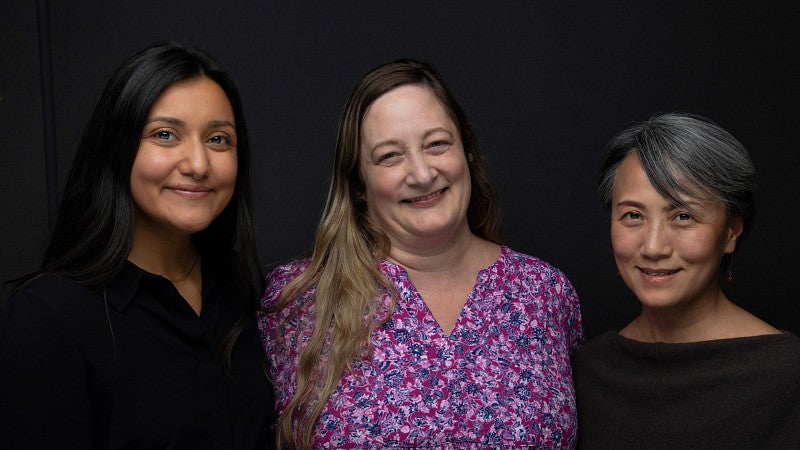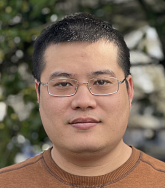
When a natural disaster or cyber-attack strikes, artificial intelligence can detect these events by analyzing text for specific keywords and language patterns that signify an emergency.
Yet one looming question for researchers is how to ensure this information can be accessed not only in English, but in low-resource languages, or those that do not yet have substantial data sets available for training artificial intelligence (AI) models.
It’s a question that drives Thien Nguyen, assistant professor of computer science in the College of Arts and Sciences, to focus his research on natural language processing for multilingual learning—a project that has earned him the prestigious Faculty Early Career Development Program (CAREER) award from the National Science Foundation (NSF).

Natural language processing is an area of AI that focuses on giving computers the ability to understand, interpret, and generate meaningful human language. Nguyen’s research involves programming computers to recognize events such as natural disasters, cyberattacks, disease outbreaks, and protests by scanning text from news articles or other online sources, allowing information to be quickly dispersed.
Nguyen says the intelligence community is specifically interested in learning how event structure recognition can identify potential acts of terrorism and respond efficiently. On a local level, event structure recognition can analyze news quickly and provide accurate information on pressing matters.
One of the challenges Nguyen and his team have encountered is developing a system that understands different languages. Current event structure recognition is available in only select, common languages, which limits the number of people who are able to benefit from the technology.
The primary goal of Nguyen’s research is to create learning methods to build event structure models in low-resource languages, making the benefits accessible to more people.
Nguyen developed a passion for natural language processing (NLP) and machine learning—the use of data and algorithms to imitate the way humans learn—during his time as an undergraduate at Hanoi University of Science and Technology, where he worked with a professor on an information extraction project using machine learning models.


I was so excited for the potential of machine learningThien Nguyen, professor of computer science
Although the continued use of artificial intelligence is still the subject of an ongoing conversation among researchers—such as how to best use tools such as ChatGPT to complete current tasks and address NLP challenges—Nguyen believes the evolution of AI will transform natural language processing in the future. Past problems relating to NLP took years to solve, but with the advances in AI over the past few years, problems can now be solved quickly and efficiently.
Since receiving the NSF CAREER award, Nguyen is looking forward to the future of his research.
“It’s so crucial,” he says. “The scientific community recognizes the problem that we are working on as a meaningful problem.”
—By Bailey Meyers, College of Arts and Sciences

